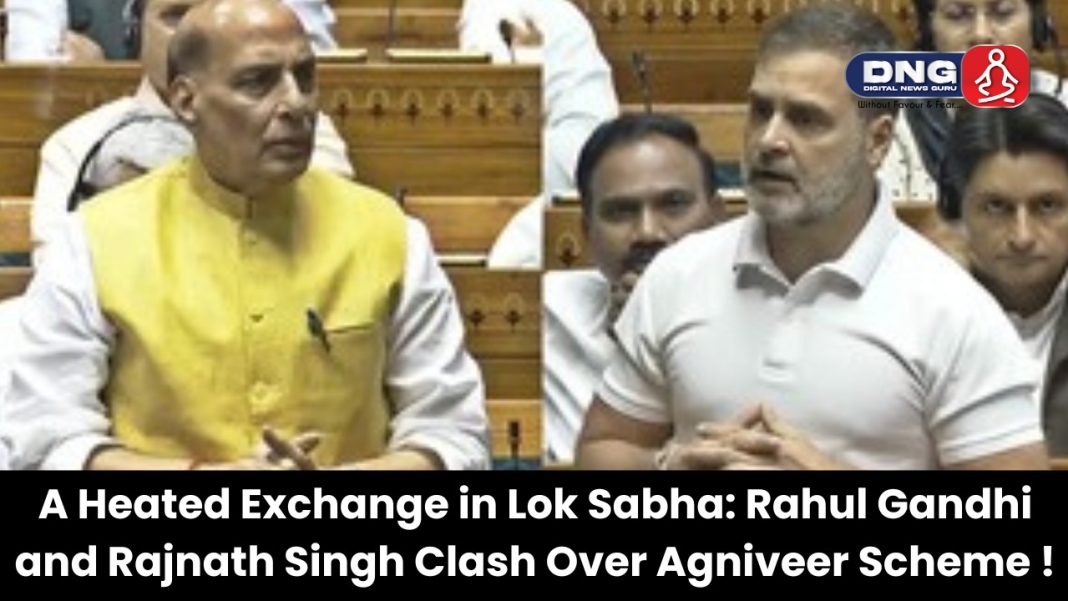DIGITAL NEWS GURU POLITCAL DESK :-
A Heated Exchange in Lok Sabha: Rahul Gandhi and Rajnath Singh Clash Over Agniveer Scheme !
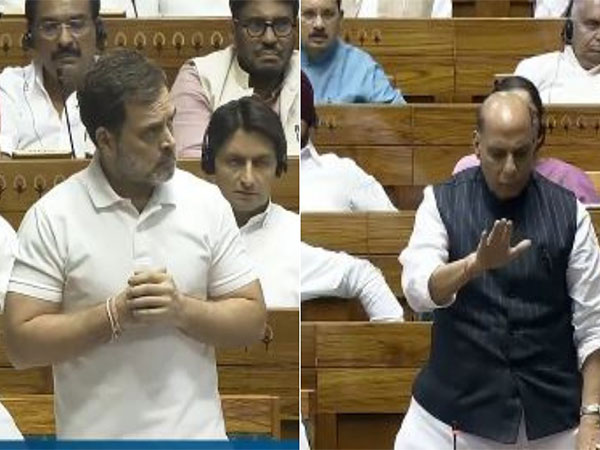
In a charged Lok Sabha session today, Congress leader Rahul Gandhi and Union Defence Minister Rajnath Singh clashed over the contentious Agniveer scheme. This scheme, introduced by the BJP-led NDA government, aims to overhaul the recruitment process for the Indian armed forces.
The debate highlighted the deep political and ideological divisions between the opposition and the ruling government, with each side presenting starkly different views on the scheme’s implications.
Rahul Gandhi’s Critique of the Agniveer Scheme:
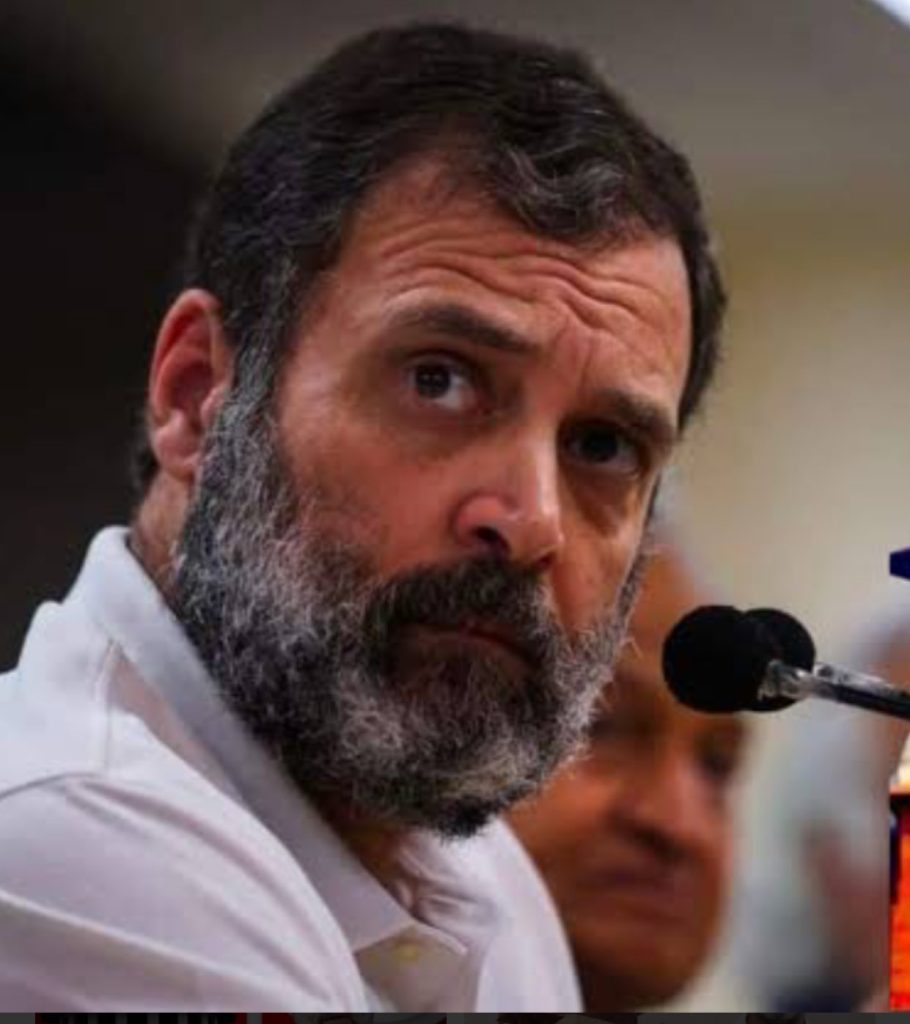
Rahul Gandhi opened his critique with a scathing analysis of the Agniveer scheme, which recruits young individuals for a short-term service of four years, retaining only 25% of them afterward.
Gandhi argued that this policy undermines the stability and security of the armed forces and places the recruited Agniveers in precarious positions without the assurance of pensions or long-term benefits.
Economic and Social Impact:
Gandhi emphasized that the scheme not only destabilizes the lives of young recruits but also fails to provide a viable long-term career path. He argued that the absence of a pension scheme for Agniveers could lead to financial insecurity for many young soldiers, particularly those who are not retained after their four-year stint.
“This scheme is a disservice to our brave soldiers and their families,” Gandhi stated. He highlighted that these short-term recruitments could demoralize the forces and reduce the efficiency and effectiveness of military operations.
Historical and Cultural Context: Gandhi invoked the rich history and tradition of the Indian armed forces, arguing that the Agniveer scheme disregards the values of honor, long-term service, and commitment that have historically defined the military.
He warned that this shift towards short-term contracts could erode the institutional knowledge and experience that come from longer service periods.
Rajnath Singh’s Defense of the Agniveer Scheme:
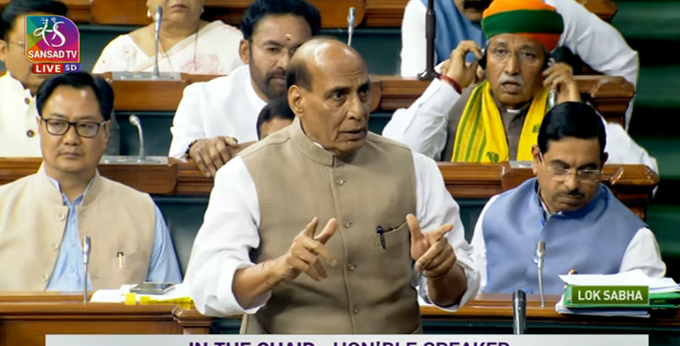
In a robust defense, Rajnath Singh countered Gandhi’s critiques by emphasizing the strategic and practical benefits of the Agniveer scheme. He argued that the scheme is designed to modernize the armed forces and align them with contemporary needs and global standards.
Modernization and Flexibility:
Singh stated that the Agniveer scheme introduces a much-needed flexibility and agility to the recruitment process. By bringing in younger recruits on shorter terms, the military can remain dynamic and adaptable to changing technological and strategic demands. “The Agniveer scheme is a forward-looking policy that will make our armed forces more agile and responsive,” Singh asserted.
Opportunities for Youth:
Singh also highlighted the scheme’s potential to provide opportunities for a larger number of young Indians to serve in the military, even if for a shorter duration. He argued that this exposure to military training and discipline would benefit the recruits, whether they continue in the military or pursue civilian careers afterward. “This is not just about military service; it’s about nation-building and empowering our youth,” Singh added.
Economic Considerations:
Addressing the pension concerns, Singh argued that the government has put in place various measures to support Agniveers post-service, including skill development programs and preferential treatment in other government jobs. He maintained that these measures ensure that Agniveers are well-prepared for civilian life if they do not continue in the military.
Broader Political Implications:
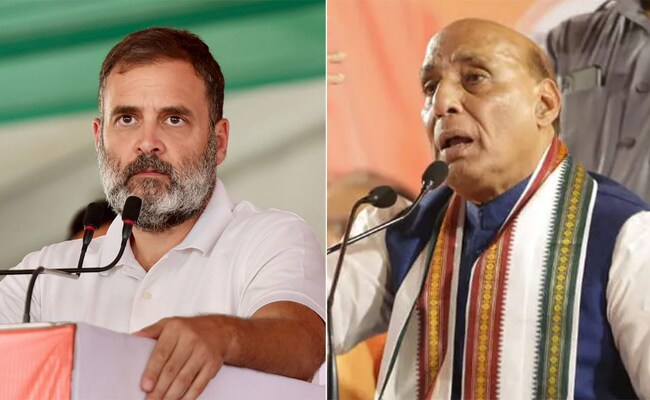
The debate over the Agniveer scheme is emblematic of the broader ideological battle between the Congress and the BJP. Gandhi’s arguments focused on the scheme’s potential negative impacts on the traditional values and long-term stability of the armed forces, positioning the Congress as a defender of established military traditions and the welfare of soldiers.
On the other hand, Singh’s defense framed the scheme as a necessary reform for modernization and youth empowerment, aligning with the BJP’s broader narrative of innovation and economic pragmatism. This clash highlights the differing visions of the two parties for India’s future – one rooted in preserving traditional values and long-term commitments, and the other pushing for modernization and structural reforms.
Conclusion :
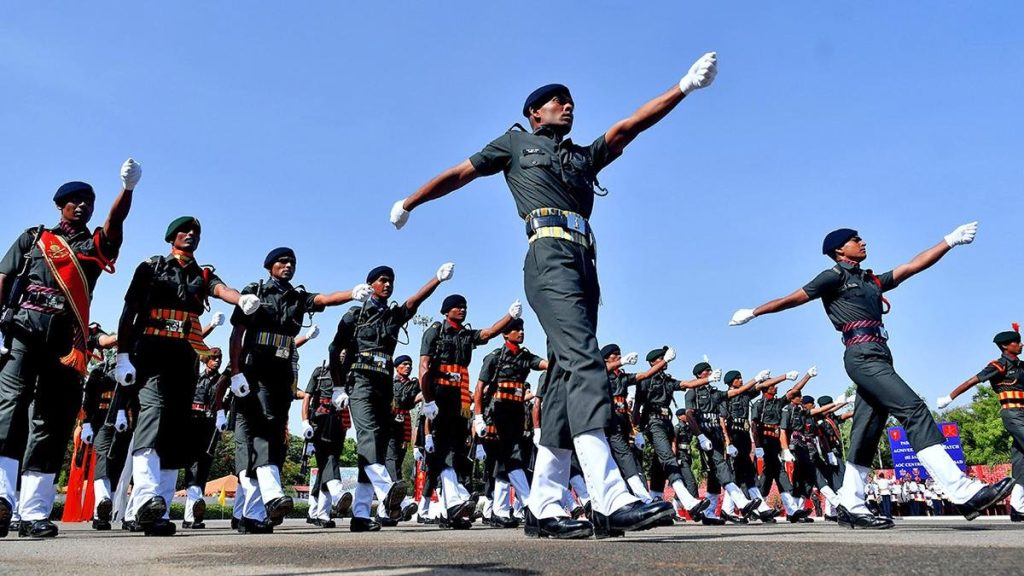
The heated exchange between Rahul Gandhi and Rajnath Singh over the Agniveer scheme underscores the contentious nature of this policy and its far-reaching implications for the Indian armed forces and society at large.
Gandhi’s critique raised important questions about the stability and welfare of young soldiers, while Singh’s defense emphasized modernization and flexibility. As the political discourse continues to evolve, the debate over the Agniveer scheme will likely remain a pivotal issue, reflecting the broader ideological battles shaping India’s future.
The Lok Sabha session today not only brought the Agniveer scheme into sharp focus but also highlighted the deep-rooted political and ideological divides between the Congress and the BJP. With each side presenting compelling arguments, the debate underscored the complexities and challenges of balancing modernization with tradition, and economic pragmatism with social welfare.
YOU MAY ALSO READ :- Sonu sood birthday special : सोनू सूद है रियल लाइफ के हीरो, मसीहा बन कर करी थी वैश्विक महामारी के बीच सभी लोगों की मदद !



